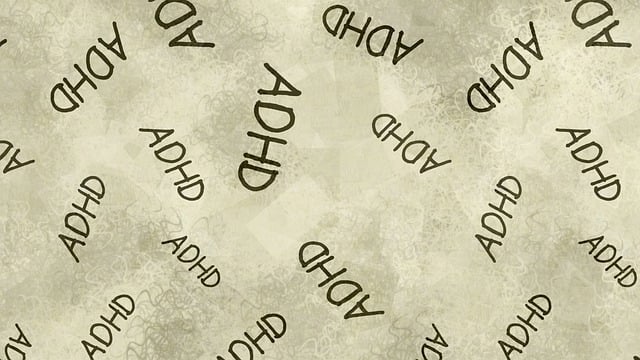Northglenn Biofeedback Therapy leverages comprehensive risk assessment as a cornerstone of its commitment to client safety in mental health practice. By meticulously evaluating psychological states, past traumas, and current stressors, their therapists employ evidence-based methods for informed decision-making. This proactive approach not only mitigates burnout, depression, and stigma but also fosters trust, open communication, and personalized care plans. Through regular training, self-assessment, and community engagement, Northglenn Biofeedback Therapy ensures safe and effective mental health support, revolutionizing the landscape of mental wellness services.
Mental health professionals are often on the front line, supporting individuals navigating complex emotional landscapes. Effective risk assessment is crucial for ensuring safe and ethical practice, especially at specialized centers like Northglenn Biofeedback Therapy. This article explores the intricacies of risk assessment in mental health, from identifying potential hazards to implementing robust management strategies. We delve into ethical considerations and emphasize the importance of continuous evaluation for enhancing safety and improving patient outcomes.
- Understanding Risk Assessment in Mental Health Practice
- Identifying Potential Risks at Northglenn Biofeedback Therapy
- Ethical Considerations for Mental Health Professionals
- Implementing Effective Risk Management Strategies
- Continuous Evaluation and Improvement for Safe Practice
Understanding Risk Assessment in Mental Health Practice

In the realm of mental health practice, risk assessment is a crucial component for ensuring client safety and well-being. It involves a systematic process of identifying, analyzing, and mitigating potential risks associated with various mental illnesses and therapeutic interventions. For instance, at Northglenn Biofeedback Therapy, professionals employ evidence-based methods to evaluate clients’ psychological states, past traumas, and current stressors, thereby facilitating informed decision-making. This proactive approach not only helps in Burnout Prevention but also plays a pivotal role in Depression Prevention by enabling therapists to tailor treatments effectively.
Mental Illness Stigma Reduction Efforts are another significant aspect integrated into risk assessment practices. By understanding the unique challenges faced by individuals struggling with mental health issues, therapists can create supportive environments that foster trust and encourage open communication. This, in turn, facilitates more accurate diagnoses and personalized care plans, ultimately enhancing client outcomes. Through comprehensive risk assessments, Northglenn Biofeedback Therapy strives to revolutionize mental health support, ensuring professionals are equipped to navigate complex cases while prioritizing client safety at every step.
Identifying Potential Risks at Northglenn Biofeedback Therapy

At Northglenn Biofeedback Therapy, identifying potential risks is a multifaceted process that involves assessing the unique challenges faced by clients seeking mental health support. These risks can stem from various sources, including past traumatic experiences, current stressors, and underlying psychological conditions. Mental wellness professionals at Northglenn employ advanced conflict resolution techniques to navigate these complexities, fostering an environment where clients feel safe to explore their emotions and vulnerabilities.
By integrating insights from the Mental Wellness Podcast Series Production, therapists utilize evidence-based Stress Reduction Methods to help individuals manage anxiety, depression, and other mental health issues. Through regular risk assessments, Northglenn Biofeedback Therapy ensures that interventions are tailored to meet individual needs, enhancing the effectiveness of treatment and promoting positive outcomes for each client.
Ethical Considerations for Mental Health Professionals

Mental health professionals face unique challenges that necessitate a nuanced approach to risk assessment. Ethical considerations are paramount when dealing with vulnerable individuals seeking support for their mental wellness. At Northglenn Biofeedback Therapy, for instance, therapists must uphold strict confidentiality and ensure client privacy, even in the face of potential harm. This includes carefully documenting sessions and maintaining secure records, as well as being mindful of the power dynamics inherent in the therapeutic relationship.
Additionally, professionals are obligated to prioritize self-awareness exercises and ongoing professional development. Engaging in regular Mental Wellness Journaling Exercise Guidance can help therapists process complex cases and stay attuned to their own emotional responses. Public Awareness Campaigns Development is another critical aspect, as educating the community about mental health issues fosters understanding and reduces stigma, ultimately enhancing access to necessary care.
Implementing Effective Risk Management Strategies

Implementing effective risk management strategies is a cornerstone for mental health professionals at Northglenn Biofeedback Therapy, aiming to safeguard both clients and practitioners. This involves a multi-faceted approach that starts with thorough client assessments to identify potential risks or triggers. By integrating Mental Health Awareness and Policy Analysis and Advocacy, therapists can create personalized treatment plans addressing specific needs while mitigating possible outcomes.
Regular training on risk assessment and management is essential for updating knowledge and staying equipped to handle diverse scenarios. These strategies not only ensure the safety of clients but also foster an environment of trust and open communication, enhancing the therapeutic relationship. A proactive approach to risk management contributes to the overall Mental Health Policy Analysis and Advocacy, promoting best practices in the field.
Continuous Evaluation and Improvement for Safe Practice

Mental health professionals must embrace a culture of continuous evaluation and improvement to ensure safe and effective practice. Regular self-assessment and peer review are essential components of this process. Professionals at Northglenn Biofeedback Therapy, for instance, incorporate mindfulness meditation and mental wellness journaling exercises into their guidance to foster ongoing reflection and growth. This allows them to stay attuned to clients’ evolving needs and adjust their approaches accordingly.
By integrating mood management techniques and regularly seeking feedback, these professionals can identify potential risks and implement preventive measures. Continuous improvement not only enhances client outcomes but also contributes to the overall resilience and adaptability of mental health services. It encourages a dynamic approach to practice, ensuring that evidence-based strategies remain at the forefront of care delivery.
Mental health professionals, like those at Northglenn Biofeedback Therapy, must consistently assess and manage risks to ensure a safe and effective therapeutic environment. By understanding potential hazards, identifying them proactively, adhering to ethical guidelines, and implementing robust risk management strategies, practitioners can foster a culture of continuous evaluation and improvement. This approach not only protects clients but also enhances the overall quality of mental health services provided.














